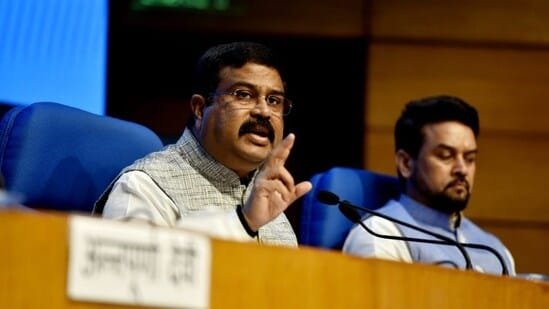Cabinet approves ‘PM-SHRI Yojna’ under which 14,500 schools to be upgraded
These schools will become model schools and will encapsulate the full spirit of the National Education Policy (NEP) 2020.

The Union cabinet has approved the Pradhan Mantri Schools For Rising India (PM-SHRI) Yojana under which 14,500 schools from across the country will be upgraded as PM-SHRI schools. “Over 14,000 schools, including Kendriya Vidyalayas and Navodaya Vidyalayas, will be strengthened to emerge as PM-SHRI schools,” Union minister of education Dharmendra Pradhan on Wednesday.
These schools will become model schools and will encapsulate the full spirit of the National Education Policy (NEP) 2020.
On September 5, on the occasion of Teachers’ Day, Prime Minister Narendra Modi had made the announcement.
“Today, on #TeachersDay I am glad to announce a new initiative – the development and upgradation of 14,500 schools across India under the Pradhan Mantri Schools For Rising India (PM-SHRI) Yojana. These will become model schools which will encapsulate the full spirit of NEP,” PM Modi said in a series of tweets.
The Prime Minister said the PM-SHRI schools will have a modern, transformational and holistic method of imparting education. “(They will) Emphasise on a discovery-oriented, learning-centric way of teaching. Focus will also be on modern infra including latest technology, smart classrooms, sports and more,” Modi said.
“The National Education Policy has transformed the education sector in recent years. I am certain that the PM-SHRI schools will further benefit lakhs of students across India in the spirit of NEP,” he added.
Earlier in June, during the National Conference of School Education Ministers in Gandhinagar, Pradhan said the PM-SHRI schools will be the laboratory of NEP 2020.
About the schools
These schools will be equipped with modern infrastructure including labs, smart classrooms, libraries, sports equipment, art room, among others, that is inclusive and accessible, the education ministry said, adding they will also be developed as “green schools” with water conservation, waste recycling, energy-efficient infrastructure and integration of organic lifestyle in the curriculum.
“They will provide leadership in their respective regions in providing high-quality education in an equitable, inclusive and joyful school environment that takes care of the diverse background, multilingual needs, and different academic abilities of children and makes them active participants in their own learning process as per the vision of NEP 2020,” the ministry said.
Sandeep Raiza — Content Writer, Website Designer, SEO Strategist, and WordPress Expert AI specialist delivering impactful digital solutions that drive business growth.Combining creative storytelling with technical expertise.
